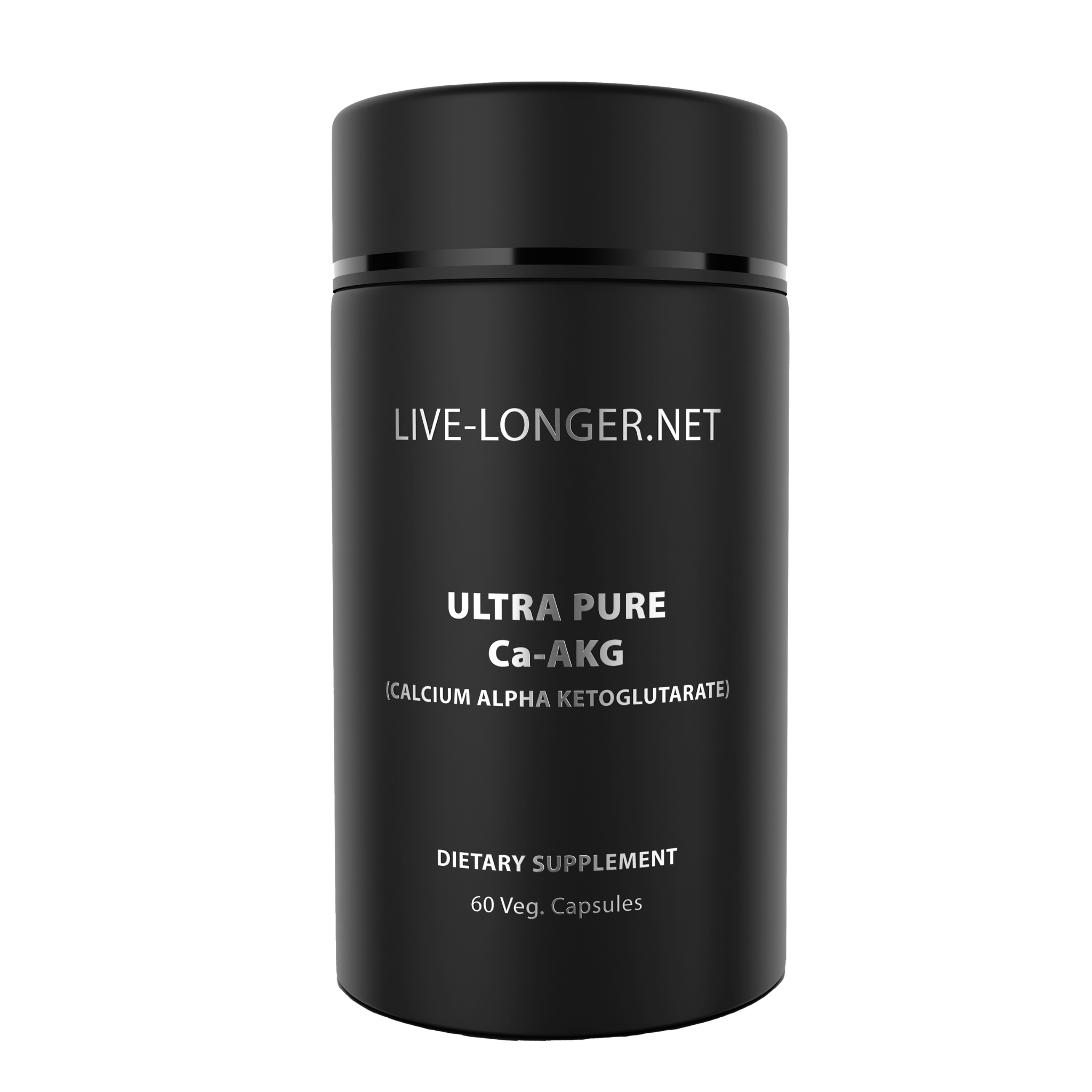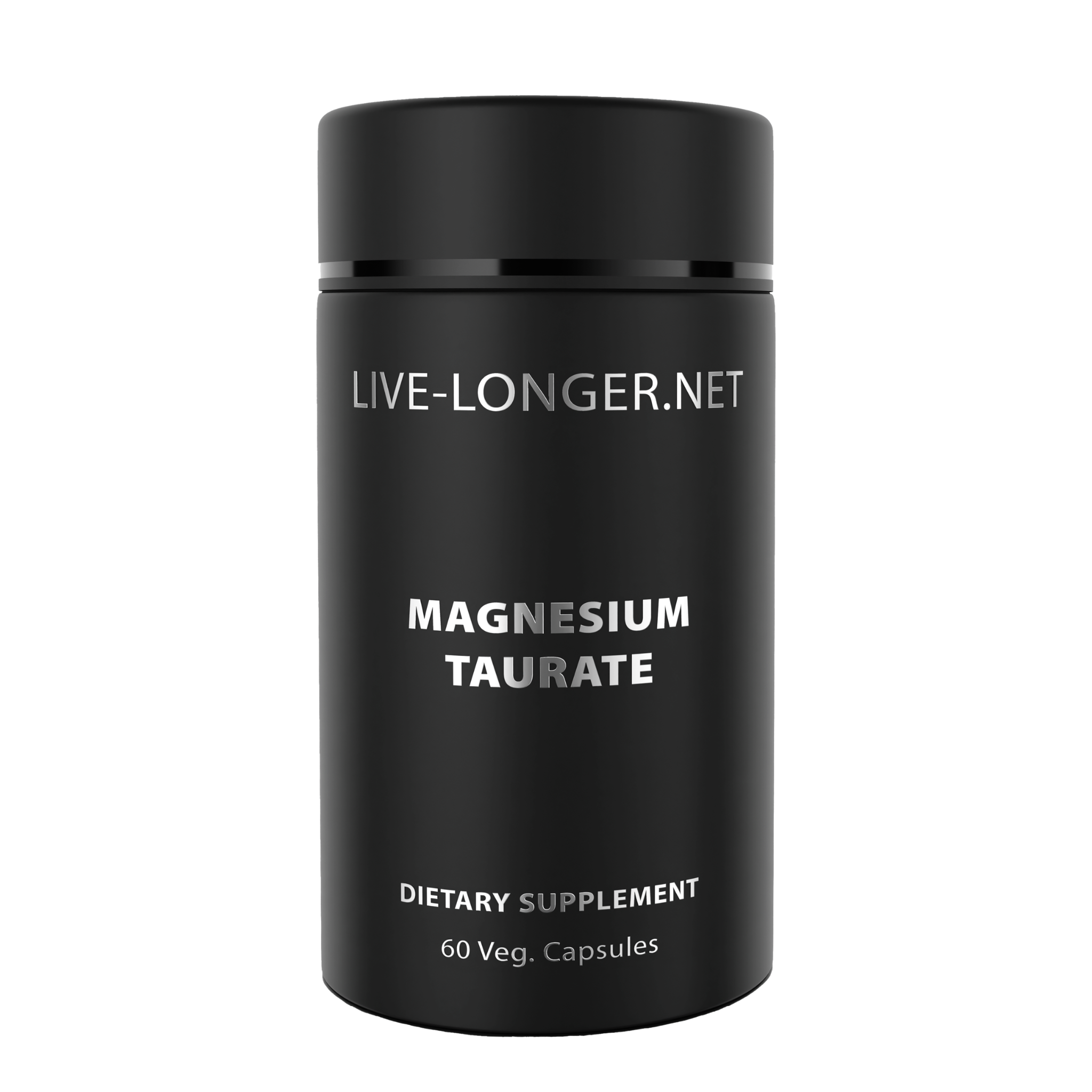Glycine is a crucial amino acid we have in our bodies. Just like other amino acids, it synthesizes proteins and performs a role in various metabolic functions.
But are you aware of the anti-aging role of glycine? How does it prevent wrinkles, heal wounds, protect your heart and improve sleep?
We can get glycine through a diet like red meat, but only some nowadays are really able to follow a healthy diet. Those tight deadlines, long working hours and never-ending home chores have made it impossible to keep a check on our nutrition. This is where supplements come in handy!
Today, we're going to discover the best glycine supplement and its anti-aging benefits for you!
Has Anti-Aging Role
There is a special molecule in our bodies called glutathione, which comprises three amino acids: glycine, glutamine, and cysteine.
Glutathione is an antioxidant that protects our cells from the damage caused by free radicals and other inflammatory molecules. Free radicals can damage cells, proteins, and DNA.
If you don't have enough glycine, your body won't make as much glutathione, which could harm your body's ability to deal with these free radicals.
A review from 2017 has also shed light on the anti-inflammatory and antioxidant role of glycine amino acid [1].
As you age, your glutathione levels drop naturally. Still, you can boost your natural ability to synthesize glutathione by taking the best glycine supplements.
Building Block of Collagen
Glycine is a crucial amino acid found in collagen. It makes up about 33% of all the collagen in our body [2].
Collagen is like your body's construction material – it's everywhere! It gives muscles, skin, cartilage, blood, bones, and ligaments their strength and rigidity.
Adding extra collagen to your body can make your skin healthier, reduce joint pain, and keep your bones strong.
A systematic review from 2022, which included 12 randomized human trials, concluded that collagen improves your skin's elasticity, moisture, and hydration [3].
So, to keep your body's collagen production running smoothly, ensure you're getting enough glycine via the best glycine supplement.
Reduces the Risk of Obesity
Taking the best glycine supplement reduces the risk of obesity. A study has discovered that people with a liver condition called NAFLD (Non-Alcoholic Fatty Liver Disease) tend to have lower glycine levels, about 9 to 13% less than usual [4].
Moreover, a 2017 meta-analysis was done on 47 studies with a total of 200 subjects, including healthy, obese, and type-2 diabetic individuals. The analysis found that people with obesity and type 2 diabetes had lower glycine levels compared to healthy individuals [5].
These findings indicate that glycine may have a role in managing obesity. However, no clinical study has yet been conducted that proves this association.
Protects Heart Health
Research says the incidence of heart attack has increased by 78% from 1990 to 2019 [6]. According to the Centers for Disease Control and Prevention, every 40 seconds, someone has a heart attack in the U.S. [7].
Taking glycine supplements might help lower the risk of heart attack.
A study included over 4,100 people with chest pain and found that those with higher glycine levels were less likely to have heart disease or heart attacks over 7.4 years [8].
Another study in rats found that glycine could lower some risk factors for heart disease, mainly when the rats ate sugary foods [9].
Too much added sugar in your diet can harm your heart, raise blood pressure and cause unhealthy fat buildup, especially around the belly.
Taking the best glycine supplement might keep your heart healthy by stopping the buildup of unhealthy fats clogging the arteries, which can lead to heart problems. Also, it could improve your body's use of nitric oxide, which helps blood flow smoothly and keeps blood pressure in check.
Effective Against High Blood Pressure
Recent discoveries show that adding glycine to the diet lowers high blood pressure in rats with metabolic syndrome [10].
Scientists are still trying to understand precisely how glycine does this. It could be because glycine acts as a neurotransmitter, which might slow down the heart rate when the body's fight-or-flight system kicks in.
Using the best glycine supplement helps decrease high blood pressure by reducing the production of harmful free radicals and increasing a substance called nitric oxide, which helps relax blood vessels.
Also, because glycine is crucial for making essential proteins like collagen and elastin, not having enough can lead to problems with the elasticity of blood vessels, making them less flexible and possibly contributing to high blood pressure.
Helps People With Type-2 Diabetes
Insulin helps lower blood sugar by moving it into cells for energy or storage. People with type 2 diabetes cannot make enough insulin or cannot use it properly. The ability to utilize insulin is called insulin resistance.
Low glycine levels are also a strong predictor for developing glucose intolerance and type 2 diabetes.
Some research studies suggest that taking the best glycine supplement can improve insulin response in people without diabetes. Nine healthy subjects were given glycine and glucose at random intervals, and their glucose, glycine and insulin levels were measured. The research concluded that when glycine was given with glucose, there was a 50% decrease in plasma glucose compared to when glucose was taken alone [11].
Moreover, having higher glycine levels is linked to a lower risk of type 2 diabetes, even when considering other factors like lifestyle [12]. So, people with type 2 diabetes might benefit from taking glycine supplements.
Improves Liver Health
According to a 2019 report by the Centers for Disease Control and Prevention, around 38 million U.S. adults binge drink alcohol [13].
Binge drinking is defined as consuming five or more drinks on one occasion for males and four or more drinks on one occasion for females.
Drinking too much alcohol is obviously bad for your health, but it can have devastating effects on your liver.
Drinking too much alcohol can result in the building up of fat around the liver or make the liver tissue inflamed, resulting in scarring of the liver tissue (called liver cirrhosis).
Some studies suggest using the best glycine supplement might help protect your liver from the damage caused by alcohol. Glycine reduces the alcohol levels in the blood by assisting the breakdown of alcohol in the stomach instead of the liver. In this way, it would also prevent fatty liver and alcoholic cirrhosis [14].
Even though stopping drinking can help reverse some liver damage, glycine might speed up the healing process.
In one study with rats, the liver cells got better 30% faster when they ate food with glycine for two weeks than those without [15].
Amends Sleep Quality
Around 25-35% of the world's population has occasional insomnia, while 10-15% faces persistent difficulty falling asleep [16].
If you have trouble sleeping, there are different things you can try. For instance, avoiding caffeine in the evening and not using screens before bedtime might help. Another thing is to consider using some of the best sleep support supplements, including glycine supplements.
Glycine has a calming effect on the brain and can help you fall asleep faster and stay asleep by lowering your body temperature.
Some studies suggest that taking glycine supplements might help people with trouble sleeping.
For instance, a study from 2015 in Japan conducted on rats discovered that those who got glycine dose slept more deeply and woke up less compared to the other group who did not take glycine. The study concluded that glycine helps sleep by changing body temperature and the internal biological clock [17].
Moreover, human studies have found that taking 3 grams of glycine before bed can help people with sleep problems. It can make it easier to fall asleep, improve sleep quality, reduce daytime sleepiness, and even make thinking clearer [18].
Taking the best glycine supplement could be a good option for improving sleep without needing prescription pills.
Boosts Cognitive Health
We have a happy hormone called serotonin in our brain that boosts mood, sleep, memory, and thinking.
Animal studies have shown that taking glycine increases serotonin levels. Because of this, some people believe that glycine is a "natural antidepressant" in our body [19].
Research has also unveiled the beneficial effects of taking the best glycine supplement in schizophrenia, a mental illness causing strange beliefs, hallucinations, and unusual actions.
In a 2001 study, 12 patients with schizophrenia were given glycine supplements. The trial found a 34% reduction in the negative symptoms of schizophrenia in those patients [20].
Takeaway Message!
Glycine is an important amino acid involved in various biological functions in our body, like synthesizing collagen, releasing serotonin, and providing multiple anti-aging benefits.
Apart from this, using the best glycine supplement has been shown to improve heart health, cognitive function, and insulin sensitivity in type-2 diabetes patients and protect the liver from alcohol-induced damage.
You can take glycine supplements in a capsule or powder form. Glycine supplements often contain some other elements like magnesium to increase the absorption of glycine in the body.
Remember to contact your healthcare provider before using any glycine supplement. Shop our all products to find the best options available.
References
- Pérez-Torres, I., Zuniga-Munoz, A. M., & Guarner-Lans, V. (2017). Beneficial Effects of the Amino Acid Glycine. Mini reviews in medicinal chemistry, 17(1), 15–32.
- de Paz-Lugo, P., Lupiáñez, J. A., & Meléndez-Hevia, E. (2018). High glycine concentration increases collagen synthesis by articular chondrocytes in vitro: acute glycine deficiency could be an essential cause of osteoarthritis. Amino acids, 50(10), 1357–1365.
- Al-Atif H. (2022). Collagen Supplements for Aging and Wrinkles: A Paradigm Shift in the Fields of Dermatology and Cosmetics. Dermatology practical & conceptual, 12(1), e2022018.
- Gaggini, M., Carli, F., Rosso, C., Buzzigoli, E., Marietti, M., Della Latta, V., Ciociaro, D., Abate, M. L., Gambino, R., Cassader, M., Bugianesi, E., & Gastaldelli, A. (2018). Altered amino acid concentrations in NAFLD: Impact of obesity and insulin resistance. Hepatology (Baltimore, Md.), 67(1), 145–158.
- Okekunle, A. P., Li, Y., Liu, L., Du, S., Wu, X., Chen, Y., Li, Y., Qi, J., Sun, C., & Feng, R. (2017). Abnormal circulating amino acid profiles in multiple metabolic disorders. Diabetes research and clinical practice, 132, 45–58.
- Li, Y., Cao, G. Y., Jing, W. Z., Liu, J., & Liu, M. (2023). Global trends and regional differences in incidence and mortality of cardiovascular disease, 1990-2019: findings from 2019 global burden of disease study. European Journal of Preventive Cardiology, 30(3), 276–286.
- Centers for Disease Control and Prevention. (2023a, May 15). Heart disease facts. Centers for Disease Control and Prevention.
- Ding, Y., Svingen, G. F., Pedersen, E. R., Gregory, J. F., Ueland, P. M., Tell, G. S., & Nygård, O. K. (2015). Plasma Glycine and Risk of Acute Myocardial Infarction in Patients With Suspected Stable Angina Pectoris. Journal of the American Heart Association, 5(1), e002621.
- El Hafidi, M., Pérez, I., Zamora, J., Soto, V., Carvajal-Sandoval, G., & Baños, G. (2004). Glycine intake decreases plasma-free fatty acids, adipose cell size, and blood pressure in sucrose-fed rats. American Journal of Physiology. Regulatory, integrative and comparative physiology, 287(6), R1387–R1393.
- El Hafidi, M., Pérez, I., & Baños, G. (2006). Is glycine effective against elevated blood pressure?. Current opinion in clinical nutrition and metabolic care, 9(1), 26–31.
- Gannon, M. C., Nuttall, J. A., & Nuttall, F. Q. (2002). The metabolic response to ingested glycine. The American Journal of Clinical Nutrition, 76(6), 1302–1307.
- Adeva-Andany, M., Souto-Adeva, G., Ameneiros-Rodríguez, E., Fernández-Fernández, C., Donapetry-García, C., & Domínguez-Montero, A. (2018). Insulin resistance and glycine metabolism in humans. Amino acids, 50(1), 11–27.
- Centers for Disease Control and Prevention. (2019a, December 30). Alcohol and Public Health. Centers for Disease Control and Prevention.
- Iimuro, Y., Bradford, B. U., Forman, D. T., & Thurman, R. G. (1996). Glycine prevents alcohol-induced liver injury by decreasing alcohol in the rat stomach. Gastroenterology, 110(5), 1536–1542.
- Yin, M., Ikejima, K., Arteel, G. E., Seabra, V., Bradford, B. U., Kono, H., Rusyn, I., & Thurman, R. G. (1998). Glycine accelerates recovery from alcohol-induced liver injury. The Journal of pharmacology and experimental therapeutics, 286(2), 1014–1019.
- Doghramji K. (2006). The epidemiology and diagnosis of insomnia. The American Journal of managed care, 12(8 Suppl), S214–S220.
- Kawai N, Sakai N, Okuro M, et al. (2015). The sleep-promoting and hypothermic effects of glycine are mediated by NMDA receptors in the suprachiasmatic nucleus. Neuropsychopharmacology. 40(6):1405-16.
- Inagawa, K., Hiraoka, T., Kohda, T. et al. Subjective effects of glycine ingestion before bedtime on sleep quality. Sleep Biol. Rhythms 4, 75–77 (2006).
- Imtiaz S, Ikram H, Ayaz M, Qadir MI, Muhammad SA. (2018). Effect of glycine: Studying memory and behavioral changes in mice. Pak J Pharm Sci. 31(5):1943-1949.
- Javitt, D. C., Silipo, G., Cienfuegos, A., Shelley, A. M., Bark, N., Park, M., Lindenmayer, J. P., Suckow, R., & Zukin, S. R. (2001). Adjunctive high-dose glycine in the treatment of schizophrenia. The International Journal of Neuropsychopharmacology, 4(4), 385–391.









